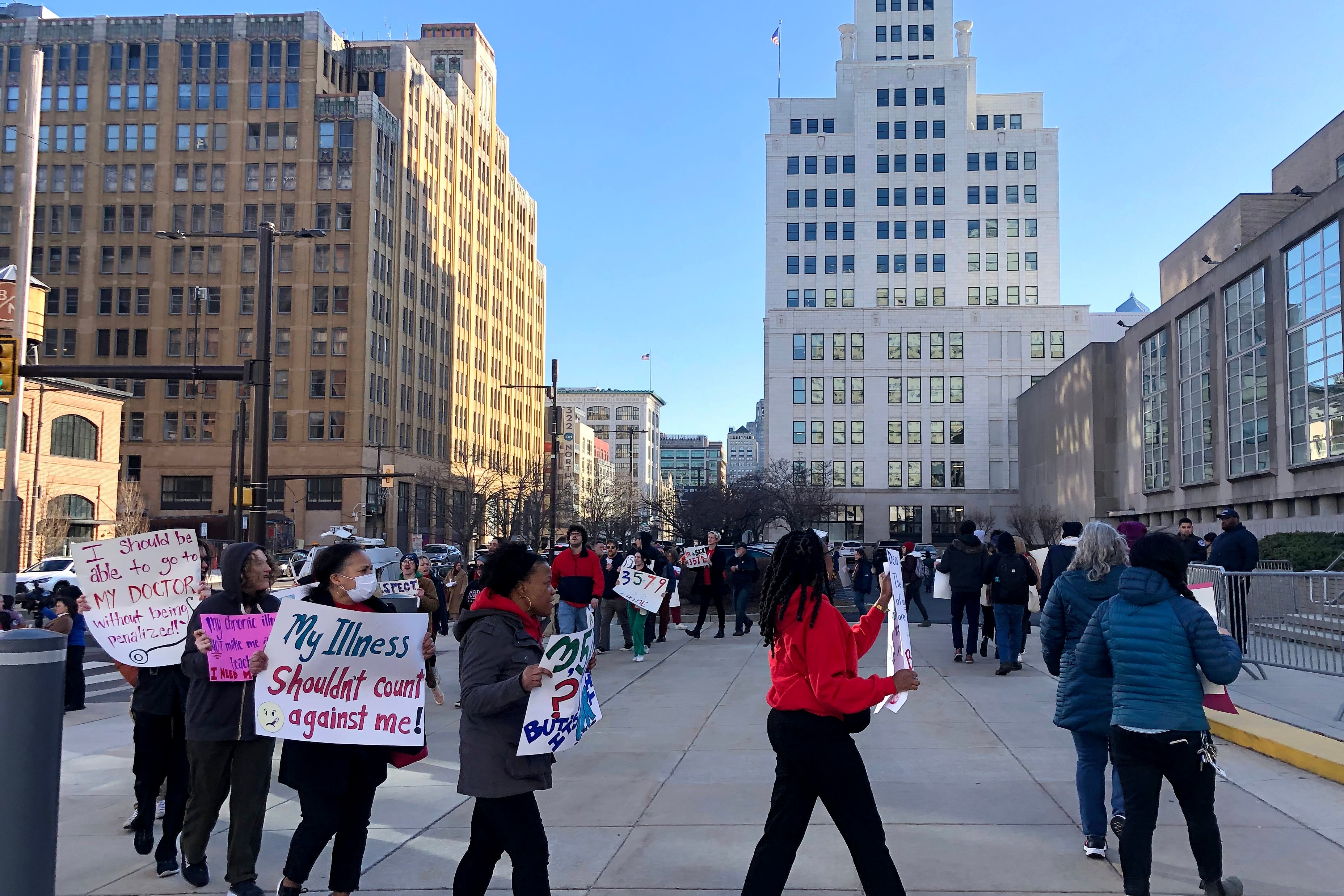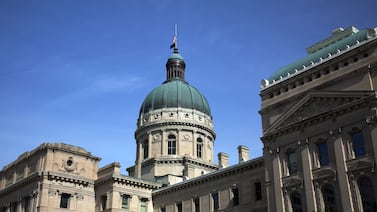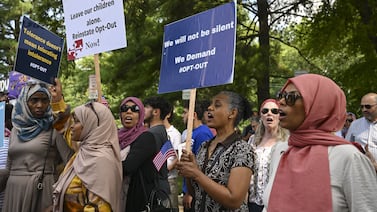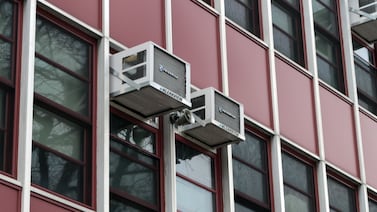Sign up for Chalkbeat Philadelphia’s free newsletter to keep up with the city’s public school system.
Philadelphia teachers fed up with a district policy that penalizes them for taking contractually guaranteed sick days decided to share their feelings publicly this week.
About 50 district employees rallied outside the Philadelphia school district headquarters ahead of the school board meeting on Thursday, demanding the district withdraw its policy that disciplines teachers for accumulating non-consecutive sick days, even though the Philadelphia Federation of Teachers’ contract with the district includes 10 sick days.
The rally represents an escalation by educators who are unhappy with the policy, which is also known as the occurrence policy or “3-5-7-9,” and comes after a year-long campaign organized by the Caucus of Working Educators, which is a group within the union. Nearly 2,000 PFT members, out of roughly 13,000 total members, signed a petition from the caucus against the policy.
Chanting teachers wore red union T-shirts and held custom signs declaring things like: “3-5-7-9 is dehumanizing.”
Charlie Hudgins, an algebra teacher at Lincoln High School who attended the rally, said the policy just “doesn’t make sense.” Hudgins is one of a number of teachers who have expressed showing up to school unwell to avoid discipline.
This week, Hudgins said he was hit with a stomach bug. He went in anyway, with a fever and a face mask. “I didn’t want anyone to give me any trouble for it,” Hudgins said.
In a statement to Chalkbeat, the district said that “the goal of these conversations is to encourage attendance and provide support when needed.” It also said suspension or termination for poor attendance is “extremely rare” and that no teacher “should come to work when they are sick.”
At Thursday’s board meeting, Superintendent Tony Watlington said, “We do not expect any teacher to come to school with the flu or to ignore a personal or family emergency ... for any teacher in the district who feels like they’ve been treated inappropriately …make that known in writing.”
Last January, Watlington told the Philadelphia Inquirer’s editorial board that the policy could be revised. The teachers union reached a tentative agreement with the district on a new contract this week, but it doesn’t include any changes to the occurrence policy, according to the union.
A single occurrence is one instance of taking sick time — taking one to three sick days in a row counts as one occurrence. If a teacher takes a sick day on a Tuesday, comes in on Wednesday, and takes another sick day on Thursday, that counts as two occurrences.
The occurrence policy features gradually escalating punishments for non-consecutive sick days.
After three occurrences, the policy directs administrators to hold an informal meeting with the teacher and give them a memo. By five occurrences, an administrator leaves a “warning memo” in the employee’s file. After seven occurrences, the teacher attends a formal meeting and gets a formal write-up in their file. By the ninth occurrence, the instructor receives another formal write-up, a suspension recommendation, and meetings with a principal and another higher-level administrator.
Any more absences could lead to suspension or termination.
The Caucus of Working Educators has been sharing teachers’ experiences on its social media pages, too. According to the posts, one teacher was “docked occurrences” for using sick days for cancer treatment, another was warned after taking sick days for prenatal appointments. And one instructor was penalized for taking sick time after their mother died.
Shira Cohen, a seventh grade math teacher at Feltonville School of Arts and Sciences and the school’s union representative, said the district’s description of the policy contradicts how it looks in practice.
“We work in a really punitive district, despite all of the messaging that they might put out,” Cohen said.
Cohen said she has often avoided scheduling doctors appointments over health concerns. “I was constantly in fear of this occurrence policy,” Cohen said. “I was not well. I couldn’t do my job.”
Cohen and Hudgins both said the policy drives teachers to leave the job. The district had close to 400 vacancies at the start of this school year.
Dan Reyes, an organizer with Caucus of Working Educators, said to the crowd at Thursday’s rally that “it’s a damn shame” that it isn’t addressed in the tentative contract, “but we aren’t going to wait for someone else to address it.”
The district also said in its statement this week it will “review” its processes related to the occurrence policy after this school year.
All of the school board members declined Chalkbeat’s request for comment. But during a December meeting, board Vice President Mallory Fix-Lopez said the policy “de-professionalizes the space that teachers work in.”
The overall message it sends to teachers, Cohen said, is: “Your health does not matter ... your humanity is not a priority to us.”
Correction: Feb. 29, 2024: A previous version of this story referred to the Philadelphia Federation of Teachers as the source of the petition against the occurrence policy. The petition came from the Caucus of Working Educators.





